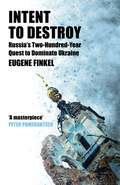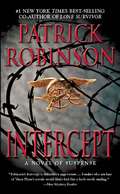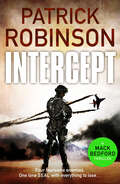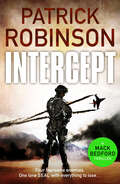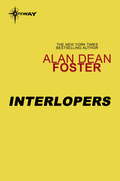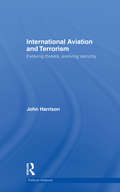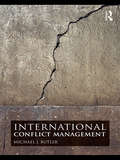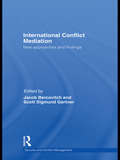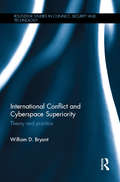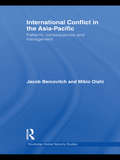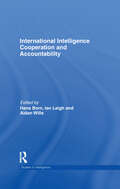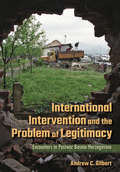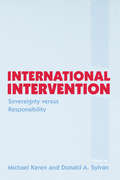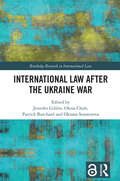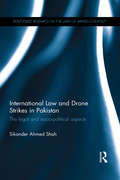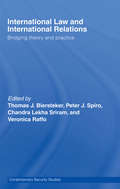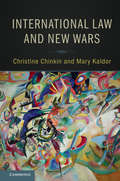- Table View
- List View
Intent to Destroy: Russia's Two-Hundred-Year Quest to Dominate Ukraine
by Eugene Finkel'The must read masterpiece . . . utterly essential' PETER POMERANTSEV'With erudition and verve' TIMOTHY SNYDER'Powerful' SERHII PLOKHY'Masterful' BEN ANSELLA history of Russian violence waged against Ukraine across the centuries. Russia's brutal invasion of Ukraine in February 2022 shocked the world. And yet this attack was in fact the latest episode in a centuries-long Russian campaign. In Intent to Destroy, leading scholar of genocide and Eastern Europe Eugene Finkel uncovers the deep roots of the Russo-Ukrainian War. Ever since the rise of Russian nationalism in the nineteenth century, the domination of this key borderland has become a cornerstone of Russian and Soviet policy. Using genocidal tactics - killings, deportations, starvation and cultural destruction - against ethnic Ukrainians and minorities including Tatars, Jews and Poles, Russia's long-standing policy has aimed to obliterate Ukrainian identity. This eradication has consistently been a part of the Kremlin playbook and leads inexorably to the violence we see today. Told with the astonishing power of Finkel's connection to this living history, and the authority of two decades of research, Intent to Destroy casts today's war it its broadest historical context, illuminating as never before Europe's bloodiest conflict since World War II.
Intent to Destroy: Russia's Two-Hundred-Year Quest to Dominate Ukraine
by Eugene Finkel'The must read masterpiece . . . utterly essential' PETER POMERANTSEV'With erudition and verve' TIMOTHY SNYDER'Powerful' SERHII PLOKHY'Masterful' BEN ANSELLA history of Russian violence waged against Ukraine across the centuries. Russia's brutal invasion of Ukraine in February 2022 shocked the world. And yet this attack was in fact the latest episode in a centuries-long Russian campaign. In Intent to Destroy, leading scholar of genocide and Eastern Europe Eugene Finkel uncovers the deep roots of the Russo-Ukrainian War. Ever since the rise of Russian nationalism in the nineteenth century, the domination of this key borderland has become a cornerstone of Russian and Soviet policy. Using genocidal tactics - killings, deportations, starvation and cultural destruction - against ethnic Ukrainians and minorities including Tatars, Jews and Poles, Russia's long-standing policy has aimed to obliterate Ukrainian identity. This eradication has consistently been a part of the Kremlin playbook and leads inexorably to the violence we see today. Told with the astonishing power of Finkel's connection to this living history, and the authority of two decades of research, Intent to Destroy casts today's war it its broadest historical context, illuminating as never before Europe's bloodiest conflict since World War II.
Intent to Destroy: Russia's Two-Hundred-Year Quest to Dominate Ukraine
by Eugene Finkel'The must read masterpiece . . . utterly essential' PETER POMERANTSEV'With erudition and verve' TIMOTHY SNYDER'Powerful' SERHII PLOKHY'Masterful' BEN ANSELLA history of Russian violence waged against Ukraine across the centuries. Russia's brutal invasion of Ukraine in February 2022 shocked the world. And yet this attack was in fact the latest episode in a centuries-long Russian campaign. In Intent to Destroy, leading scholar of genocide and Eastern Europe Eugene Finkel uncovers the deep roots of the Russo-Ukrainian War. Ever since the rise of Russian nationalism in the nineteenth century, the domination of this key borderland has become a cornerstone of Russian and Soviet policy. Using genocidal tactics - killings, deportations, starvation and cultural destruction - against ethnic Ukrainians and minorities including Tatars, Jews and Poles, Russia's long-standing policy has aimed to obliterate Ukrainian identity. This eradication has consistently been a part of the Kremlin playbook and leads inexorably to the violence we see today. Told with the astonishing power of Finkel's connection to this living history, and the authority of two decades of research, Intent to Destroy casts today's war it its broadest historical context, illuminating as never before Europe's bloodiest conflict since World War II.
Intercept
by Patrick RobinsonA left-leaning appeal court judge liberates four of the most dangerous al-Qaeda terrorists from Guantanamo Bay and the CIA field officers track them back to Pakistan’s northwest frontier mountain range. But disaster overtakes them and the four men vanish, to rejoin the dark and mysterious forces trained by Osama bin Laden high in the Hindu Kush. These are men with hatred in their hearts, with hatred for the United States and Great Britain, and they are sworn to hit back at the USA, which imprisoned so many of their high command. A fateful communication from the mountains of the Afghan side of the border is intercepted by Britain’s secret surveillance station on the Mediterranean island of Cyprus. Al-Qaeda is almost certainly planning a new hit on the US mainland. The CIA is at its wits end, all their fears coming home to roost. They know there is only one man who can stop them-retired Navy SEAL Lt. Commander Mack Bedford-and he is called in to assist on one of the most highly classified missions ever launched from CIA headquarters. Bedford names his price, and once more, the nobility of the man is spun into a breathtakingly fast action novel.
Intercept
by Patrick RobinsonA left-leaning appeal court judge liberates four of the most dangerous al-Qaeda terrorists from Guantanamo Bay and the CIA field officers track them back to Pakistan's northwest frontier mountain range. But disaster overtakes them and the four men vanish, to rejoin the dark and mysterious forces trained by Osama bin Laden high in the Hindu Kush. These are men with hatred in their hearts, with hatred for the United States and Great Britain, and they are sworn to hit back at the USA, which imprisoned so many of their high command.A fateful communication from the mountains of the Afghan side of the border is intercepted by Britain's secret surveillance station on the Mediterranean island of Cyprus. Al-Qaeda is almost certainly planning a new hit on the US mainland. The CIA is at its wits end, all their fears coming home to roost.They know there is only one man who can stop them-retired Navy SEAL Lt. Commander Mack Bedford-and he is called in to assist on one of the most highly classified missions ever launched from CIA headquarters. Bedford names his price, and once more, the nobility of the man is spun into a breathtakingly fast action novel.
Intercept
by Patrick RobinsonA left-leaning appeal court judge liberates four of the most dangerous al-Qaeda terrorists from Guantanamo Bay and the CIA field officers track them back to Pakistan's northwest frontier mountain range. But disaster overtakes them and the four men vanish, to rejoin the dark and mysterious forces trained by Osama bin Laden high in the Hindu Kush. These are men with hatred in their hearts, with hatred for the United States and Great Britain, and they are sworn to hit back at the USA, which imprisoned so many of their high command.A fateful communication from the mountains of the Afghan side of the border is intercepted by Britain's secret surveillance station on the Mediterranean island of Cyprus. Al-Qaeda is almost certainly planning a new hit on the US mainland. The CIA is at its wits end, all their fears coming home to roost.They know there is only one man who can stop them-retired Navy SEAL Lt. Commander Mack Bedford-and he is called in to assist on one of the most highly classified missions ever launched from CIA headquarters. Bedford names his price, and once more, the nobility of the man is spun into a breathtakingly fast action novel.
Intercept
by Patrick RobinsonA left-leaning appeal court judge liberates four of the most dangerous al-Qaeda terrorists from Guantanamo Bay and the CIA field officers track them back to Pakistan's northwest frontier mountain range. But disaster overtakes them and the four men vanish, to rejoin the dark and mysterious forces trained by Osama bin Laden high in the Hindu Kush. These are men with hatred in their hearts, with hatred for the United States and Great Britain, and they are sworn to hit back at the USA, which imprisoned so many of their high command.A fateful communication from the mountains of the Afghan side of the border is intercepted by Britain's secret surveillance station on the Mediterranean island of Cyprus. Al-Qaeda is almost certainly planning a new hit on the US mainland. The CIA is at its wits end, all their fears coming home to roost.They know there is only one man who can stop them-retired Navy SEAL Lt. Commander Mack Bedford-and he is called in to assist on one of the most highly classified missions ever launched from CIA headquarters. Bedford names his price, and once more, the nobility of the man is spun into a breathtakingly fast action novel.
Intercept (Mack Bedford Military Thrillers)
by Patrick RobinsonA deadly foe rears its head...An appeal court judge frees four of the world's most dangerous terrorists from Guantanamo Bay. The CIA tracks them back to Pakistan's North-West Frontier, but then the men vanish.Fortunately, a communication from the Afghan side of the border is intercepted by Britain's secret surveillance station in Cyprus. Al-Qaeda is plotting a devastating attack. The CIA panics, its greatest fears realised.Retired Navy SEAL Mack Bedford is called in to assist one of the most highly classified missions ever launched from CIA headquarters, with the stakes higher than ever before...A breathtaking and unputdownable action thriller, Intercept is ideal for fans of James Phelan and Chris Ryan.
Intercept (The Mack Bedford Military Thrillers)
by Patrick RobinsonAn ex–Navy SEAL joins a top-secret mission to halt a deadly terrorist attack in this military thriller by a #1 New York Times–bestselling author. An appeal court judge frees four of the world's most dangerous terrorists from Guantanamo Bay. The CIA tracks them back to Pakistan&’s North-West Frontier, but then the men vanish. Fortunately, a communication from the Afghan side of the border is intercepted by Britain&’s secret surveillance station in Cyprus. Al-Qaeda is plotting a devastating attack. The CIA panics, its greatest fears realized. Retired Navy SEAL Mack Bedford is called in to assist one of the most highly classified missions ever launched from CIA headquarters, with the stakes higher than ever before . . . A breathtaking and unputdownable action thriller, Intercept is ideal for fans of James Phelan and Chris Ryan.Praise for the writing of Patrick Robinson &“One of the crown princes of the beach-read thriller.&” —Stephen Coonts, New York Times–bestselling author of The Disciple&“Patrick Robinson has tapped into our fear.&” —Torquay Herald Express &“Robinson [crafts] a fast-paced, chilling, yet believable tale.&” —San Francisco Examiner
Interlopers
by Alan Dean FosterUpset stomachs. The collapse of civilizations. Nervous breakdowns.Blame them on a twist of fate, but archaeologist Cody Westcott knows differently. Something is causing these random acts of badness. Something ancient, something evil, something...hungry.We are not alone, but we're about to wish we were...Interlopers.
International Aviation and Terrorism: Evolving Threats, Evolving Security (Political Violence)
by John HarrisonThis book examines terrorism's impact on the international aviation security regime, with a focus on the role of the United States. Tracing the historical development of the international civil aviation system, the volume examines how it has dealt with the evolving security environment caused by international terrorism. It begins by exploring the practical implications of the debates over the meaning of 'terrorism' and how the international civil aviation community developed practical solutions to avoid the debilitating debates over the concept while crafting important, if weak, international conventions. As a major civil aviation power, the United States was a predominant influence in security developments in the 1960s and 1970s, yet US civil aviation policy failed to keep pace with the changing nature of the terrorist threat. The commanding position that the United States maintains in international civil aviation provides a microcosm of the promise and perils faced by the world's sole superpower. The author examines US efforts to upgrade civil aviation security in the wake of 9/11 and the impacts of these developments on the international civil aviation system. The detailed discussion of terrorism past and present places the threat in its proper context for both the international civil aviation community and its largest individual actor, the United States. This book will be of much interest to students of terrorism, aviation security, international security and IR in general. John Harrison is an Assistant Professor at the S.Rajaratnam School of International Studies and Head of Terrorism Research at the International Center for Political Violence and Terrorism Research.
International Business and National War Interests: Unilever between Reich and empire, 1939-45 (Routledge International Studies In Business History Ser.)
by Ben WubsThis book deals with the activities of the Anglo-Dutch multinational during the war. Given the various threats faced by Unilever during the Nazi period, Ben Wubs argues that it was not self evident that the company would survive the war. Based on research into company sources which were hitherto unavailable, he shows the effect of the war on Unilev
International Conflict Management
by Michael J. ButlerThis new textbook provides students with an accessible overview of the logic, evolution, application and outcomes of the five major approaches of the growing field of international conflict management: traditional peacekeeping peace enforcement and support operations negotiation and bargaining mediation adjudication. The book aims to provide the student with a fuller understanding of the strengths and weaknesses of these five techniques within the dynamic context of the contemporary security environment, especially in relation to recent and ongoing case studies of inter-state and intra-state conflict. To demonstrate the changing nature of security in the post-Cold War world, the text contrasts this with competing visions of security during the Cold War and earlier periods, and provides numerous points of comparison with the dominant causes, types, strategy, and prosecution of warfare in other eras. International Conflict Management will be essential reading for all students of conflict management, mediation, peacekeeping, peace and conflict studies, and international security in general. Michael J. Butler is an Assistant Professor in the Department of Government and International Relations at Clark University (USA).
International Conflict Mediation: New Approaches and Findings (Routledge Studies in Security and Conflict Management)
by Jacob Bercovitch Scott Sigmund GartnerThis book examines how new empirical approaches to mediation can shed fresh light on the effectiveness of different patterns of conflict management, and offers guidelines on the process of international mediation. International conflict mediation has become one of, if not the most prominent and important conflict resolution methods of the early 21st century. This book argues that traditional approaches to mediation have been inadequate, and that in order to really understand how the process of international mediation works, studies need to operate within an explicit theoretical framework, adopt systematic empirical approaches and use a diversity of methods to identify critical interactions, contexts and relationships. This volume captures recent important changes in the field of international conflict mediation, and includes essays by leading scholars on a variety of critical aspects of conflict management, using state of the art analytical tools and up to date data. This book will of great interest to scholars of peace and conflict studies, methods in social science, and of International Relations in general.
International Conflict and Cyberspace Superiority: Theory and Practice (Routledge Studies in Conflict, Security and Technology)
by William D. BryantThis book examines cyberspace superiority in nation-state conflict from both a theoretical and a practical perspective. This volume analyses superiority concepts from the domains of land, maritime, and air to build a model that can be applied to cyberspace. Eight different cyberspace conflicts between nation states are examined and the resulting analysis is combined with theoretical concepts to present the reader with a conclusion. Case studies include the conflict between Russia and Estonia (2007), North Korea and the US and South Korea (2009) and Saudi Arabia and Iran in the Aramco attack (2012). The book uses these case studies to examine cyberspace superiority as an analytical framework to understand conflict in this domain between nation-states. Furthermore, the book makes the important distinction between local and universal domain superiority, and presents a unique model to relate this superiority in all domains, as well as a more detailed model of local superiority in cyberspace. Through examining the eight case studies, the book develops a rigorous system to measure the amount of cyberspace superiority achieved by a combatant in a conflict, and seeks to reveal if cyberspace superiority proves to be a significant advantage for military operations at the tactical, operational, and strategic levels. This book will be of much interest to students of cyber-conflict, strategic studies, national security, foreign policy and IR in general.
International Conflict in the Asia-Pacific: Patterns, Consequences and Management (Routledge Global Security Studies)
by Jacob Bercovitch Mikio OishiThis book analyses four major long-standing and intractable conflicts in the Asia-Pacific region (the Korean Peninsula; the Taiwan Strait; the South China Sea (Spratly Islands); and India-Pakistan), and aims to identify the mechanisms used to manage these conflicts. International Conflict in the Asia-Pacific brings together in one volume four major international conflicts that have shaped the region, and studies how they evolved and how best to manage them. The book seeks to find a pattern common to the four conflicts and their management as well as taking note of variations among them, hereby aiming to establish what might be called the 'Asia-Pacific way of managing intractable conflicts'. This book will of much interest to students of international conflict management, Asian politics, security studies and IR in general. Jacob Bercovitch is Professor of International Relations in the Political Science Department at the University of Canterbury in New Zealand. Widely regarded as one of the most influential scholars in the field of international conflict resolution, he is author of more than 15 books and numerous articles. Mikio Oishi is a Visiting Fellow with the National Centre for Peace and Conflict Studies (NCPACS), University of Otago and a Research Fellow with Political Science Programme of University of Canterbury.
International Cultural Heritage Law in Armed Conflict
by Marina LostalThis book fills gaps in the exploration of the protection of cultural heritage in armed conflict based on the World Heritage Convention. Marina Lostal offers a new perspective, designating a specific protection regime to world cultural heritage sites, which is so far lacking despite the fact that such sites are increasingly targeted. Lostal spells out this area's discrete legal principles, providing accessible and succinct guidelines to a usually complex web of international conventions. Using the conflicts in Syria, Libya and Mali (among others) as case studies, she offers timely insight into the phenomenon of cultural heritage destruction. Lastly, by incorporating the World Heritage Convention into the discourse, this book fulfills UNESCO's long-standing project of exploring 'how to promote the systemic integration between the [World Heritage] Convention of 1972 and the other UNESCO regimes'. It is sure to engender debate and cause reflection over cultural heritage and protection regimes.
International Humanitarian Law
by Crawford, Emily and Pert, Alison Emily Crawford Alison PertThis clear and concise textbook provides an accessible and up-to-date examination of international humanitarian law. With the aid of detailed examples, extracts from relevant cases, and useful discussion questions, students are expertly guided through the text. A recommended reading list is included in every chapter to support deeper engagement with the material. Emerging trends in theory and practice are also explored, allowing readers to build on their knowledge and grapple with some of the biggest challenges facing the law of armed conflict in the twenty-first century.
International Intelligence Cooperation and Accountability (Studies in Intelligence)
by Hans BornThis book examines how international intelligence cooperation has come to prominence post-9/11 and introduces the main accountability, legal and human rights challenges that it poses. Since the end of the Cold War, the threats that intelligence services are tasked with confronting have become increasingly transnational in nature – organised crime, the proliferation of weapons of mass destruction and terrorism. The growth of these threats has impelled intelligence services to cooperate with contemporaries in other states to meet these challenges. While cooperation between certain Western states in some areas of intelligence operations (such as signals intelligence) is longstanding, since 9/11 there has been an exponential increase in both their scope and scale. This edited volume explores not only the challenges to accountability presented by international intelligence cooperation but also possible solutions for strengthening accountability for activities that are likely to remain fundamental to the work of intelligence services. The book will be of much interest to students of intelligence studies, security studies, international law, global governance and IR in general.
International Intervention and the Problem of Legitimacy: Encounters in Postwar Bosnia-Herzegovina
by Andrew GilbertIn International Intervention and the Problem of Legitimacy Andrew C. Gilbert argues for an ethnographic analysis of international intervention as a series of encounters, focusing on the relations of difference and inequality, and the question of legitimacy that permeate such encounters. He discusses the transformations that happen in everyday engagements between intervention agents and their target populations, and also identifies key instabilities that emerge out of such engagements. Gilbert highlights the struggles, entanglements and inter-dependencies between and among foreign agents, and the people of Bosnia-Herzegovina that channel and shape intervention and how it unfolds.Drawing upon nearly two years of fieldwork studying in postwar Bosnia and Herzegovina, Gilbert's probing analysis identifies previously overlooked sites, processes, and effects of international intervention, and suggests new comparative opportunities for the study of transnational action that seeks to save and secure human lives and improve the human condition.Above all, International Intervention and the Problem of Legitimacy foregrounds and analyzes the open-ended, innovative, and unpredictable nature of international intervention that is usually omitted from the ordered representations of the technocratic vision and the confident assertions of many critiques.
International Intervention: Sovereignty versus Responsibility
by Michael Keren Donald A. SylvanNational sovereignty, defined as a nation's right to exercise its own law and practise over its territory, is a cherished norm in the modern era, and yet it raises great legal, political and ethical dilemmas. This study looks at the problems created by international intervention.
International Law After the Ukraine War (Routledge Research in International Law)
by Jennifer Giblin Olena Chub Patrick Butchard Oksana SenatorovaRussia's 2022 invasion of Ukraine was a defining moment for international law and its ability to maintain international peace and security. This book highlights the principles, methods and systems in place to regulate peaceful relations between states, and the implications the war in Ukraine has had on their relevance in the changing geopolitical world.Bringing together leading experts on international law, including key Ukrainian voices, the book explores the strengths and weaknesses in international law which have been exposed by Russia's invasion. The UN has stated that the war has catastrophic effects for international security and human rights. The book explores these statements, drawing on varied aspects of international law to determine lessons to be learned from the Ukraine conflict. It also explores how international law has had to adapt to tackle the challenges which have arisen. The book asks, has the conflict challenged the theory and fundamental values of international law? Have there been any new legal developments, prompted by the war, which could be applied to future conflicts? Through these timely questions, the book re-evaluates the changing landscape of international law.The book will be of interest to students and scholars in the fields of international law, the use of force, humanitarian law, criminal law, refugee law and human rights law.
International Law and Drone Strikes in Pakistan: The Legal and Socio-political Aspects (Routledge Research in the Law of Armed Conflict)
by Sikander Ahmed ShahWhile conventional warfare has an established body of legal precedence, the legality of drone strikes by the United States in Pakistan and elsewhere remains ambiguous. This book explores the legal and political issues surrounding the use of drones in Pakistan. Drawing from international treaty law, customary international law, and statistical data on the impact of the strikes, Sikander Ahmed Shah asks whether drone strikes by the United States in Pakistan are in compliance with international humanitarian law. The book questions how international law views the giving of consent between States for military action, and explores what this means for the interaction between sovereignty and consent. The book goes on to look at the socio-political realities of drone strikes in Pakistan, scrutinizing the impact of drone strikes on both Pakistani politics and US-Pakistan relationships. Topics include the Pakistan army-government relationship, the evolution of international institutions as a result of drone strikes, and the geopolitical dynamics affecting the region. As a detailed and critical examination of the legal and political challenges presented by drone strikes, this book will be essential to scholars and students of the law of armed conflict, security studies, political science and international relations.
International Law and International Relations: Bridging Theory and Practice (Contemporary Security Studies #90)
by Thomas J. Biersteker Chandra Lekha Sriram Peter J. Spiro Veronica RaffoThis unique volume examines the opportunities for, and initiates work in, interdisciplinary research between the fields of international law and international relations; disciplines that have engaged little with one another since the Second World War. Written by leading experts in the fields of international law and international relations, it argues that such interdisciplinary research is central to the creation of a knowledge base among IR scholars and lawyers for the effective analysis and governance of macro and micro phenomena. International law is at the heart of international relations, but due to challenges of codification and enforceability, its apparent impact has been predominantly limited to commercial and civil arrangements. International lawyers have been saying for years that 'law matters' in international affairs and now current events are proving them right. International Law and International Relations makes a powerful contribution to the theory and practice of global security by initiating a research agenda, building an empirical base and offering a multidisciplinary approach that provides concrete answers to real-world problems of governance. This book will be of great interest to all students of international law, international relations and governance.
International Law and New Wars
by Mary Kaldor Christine ChinkinInternational Law and New Wars examines how international law fails to address the contemporary experience of what are known as 'new wars' - instances of armed conflict and violence in places such as Syria, Ukraine, Libya, Mali, the Democratic Republic of Congo and South Sudan. International law, largely constructed in the nineteenth and twentieth centuries, rests to a great extent on the outmoded concept of war drawn from European experience - inter-state clashes involving battles between regular and identifiable armed forces. The book shows how different approaches are associated with different interpretations of international law, and, in some cases, this has dangerously weakened the legal restraints on war established after 1945. It puts forward a practical case for what it defines as second generation human security and the implications this carries for international law.

